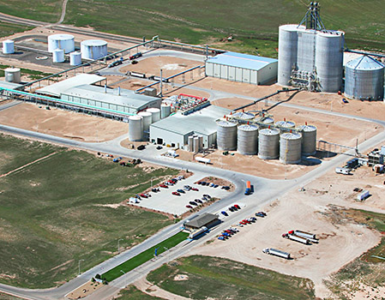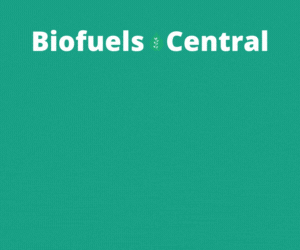Cepsa starts production of advanced biofuels at its Huelva Energy Park.
Cepsa has started to produce advanced biofuels (2G) with used cooking oils at its La Rábida Energy Park, located in Palos de la Frontera (Huelva), an important milestone in the company’s transformation towards a more sustainable energy model and its ambition to promote the circular economy.
These sustainable fuels can reduce emissions by up to 80% over their entire life cycle (compared to conventional fuels) and increase energy independence and supply security, important issues in Europe.
This milestone is part of Cepsa’s 2030 Positive Motion strategy through which the company promotes the decarbonization of heavy transport (sea, air, and road) by producing green molecules, mainly biofuels and green hydrogen. At Cepsa, we aspire to lead biofuel production in Spain and Portugal by 2030, with an annual production of 2.5 million tons.
🔥 What about we co-host a webinar? Let's educate, captivate, and convert the biofuels economy!
Biofuels Central is the global go-to online magazine for the biofuel market, we can help you host impactful webinars that become a global reference on your topic and are an evergreen source of leads. Click here to request more details
Antonio Joyanes, Cepsa’s Director of Energy Parks said:
Cepsa has been producing biofuels at its refineries for more than 10 years and has been developing pioneering studies worldwide to convert waste and used oils into fuels of renewable origin with high energy value.
“The start of production of advanced biofuels is a new step in the process of transforming our energy parks and our energy transition strategy.”
Carlos Barrasa, Director of Commercial & Clean Energies at Cepsa, said:
Our commitment is to be our customers’ best partner in achieving their sustainability goals.
“The production of second-generation biofuels allows us, for example, to continue providing value in the supply of fuels for the aviation sector, where demand will increase in the coming years.”
Biofuels have a key role to play in the decarbonization of transportation. Their development and use contribute to several of the 2030 Agenda’s Sustainable Development Goals: SDG 7 (Affordable and clean energy), SDG 8 (Decent work and economic growth), SDG 12 (Responsible production and consumption), and SDG 13 (Climate action).
Its production is also aligned with the European Commission’s Fit for 55 package, which aims to promote the use of sustainable alternative fuels to reduce the intensity of greenhouse gas emissions, especially from air and sea transportation.
Cepsa has established an ambitious roadmap to cut emissions for all its activities. Specifically, by 2030, it will reduce its CO2 emissions (Scope 1 and 2) by 55% compared to 2019 and aims to be carbon neutral by 2050.
As for Scope 3, the carbon intensity of its products will be between 15 and 20% lower by 2030. Cepsa wants to go beyond net zero and have a positive impact, adding value in the communities where it operates by enabling its customers and other stakeholders to move forward in the right direction.
Highlights:
- The company has begun to produce sustainable fuels with used cooking oils at its industrial facilities in Palos de la Frontera
- This milestone is part of Cepsa’s Positive Motion strategy that aims to lead biofuels production in Spain and Portugal with 2.5 million tons annually by 2030, promoting the decarbonization of land, sea, and air transportation
- The use of this energy source can reduce CO2 emissions by up to 80% compared to the use of conventional fuels
READ the latest news shaping the biofuels market at Biofuels Central
CEPSA STARTS PRODUCTION OF ADVANCED BIOFUELS AT ITS HUELVA ENERGY PARK, September 30, 2022








